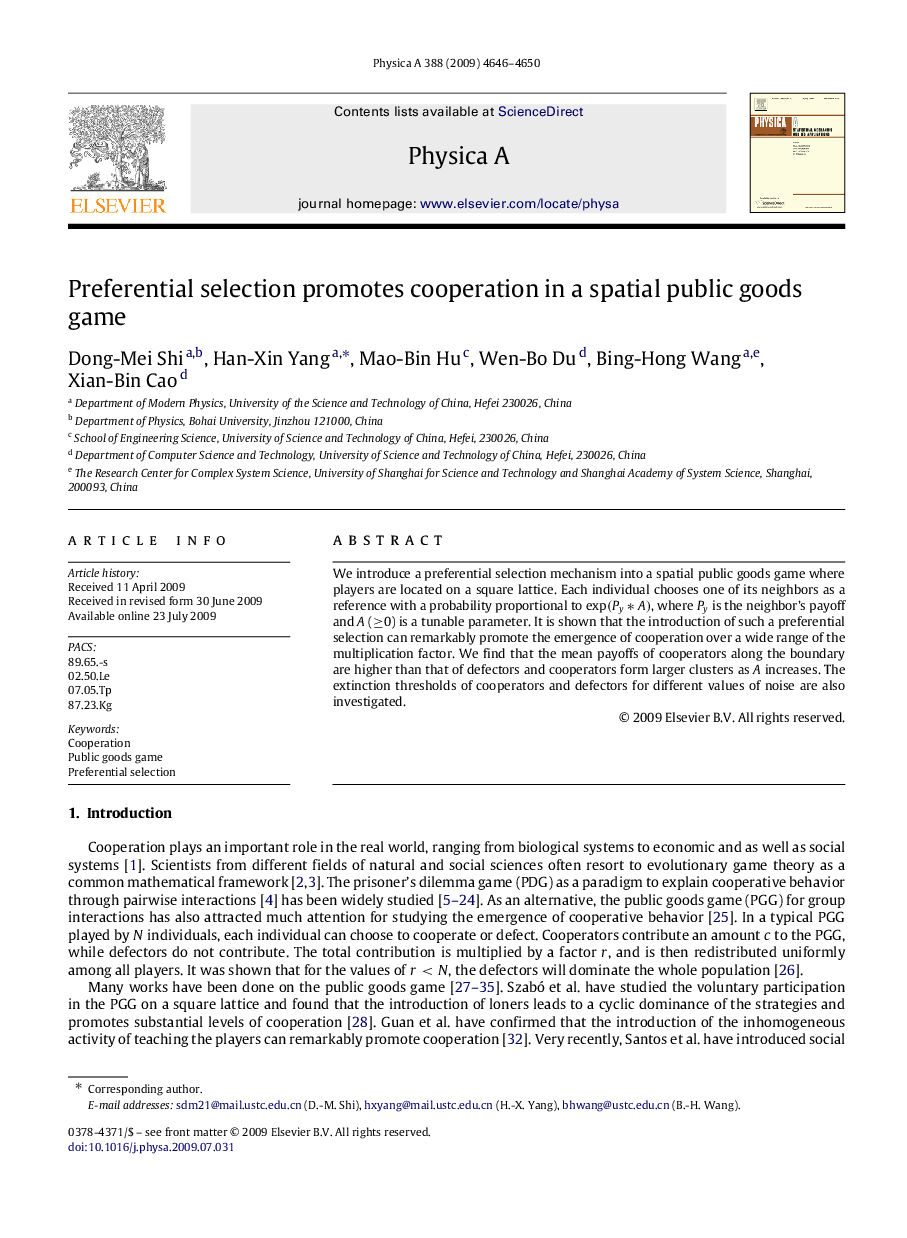| Article ID | Journal | Published Year | Pages | File Type |
|---|---|---|---|---|
| 977012 | Physica A: Statistical Mechanics and its Applications | 2009 | 5 Pages |
Abstract
We introduce a preferential selection mechanism into a spatial public goods game where players are located on a square lattice. Each individual chooses one of its neighbors as a reference with a probability proportional to exp(Py∗A), where PyPy is the neighbor’s payoff and AA (≥0) is a tunable parameter. It is shown that the introduction of such a preferential selection can remarkably promote the emergence of cooperation over a wide range of the multiplication factor. We find that the mean payoffs of cooperators along the boundary are higher than that of defectors and cooperators form larger clusters as AA increases. The extinction thresholds of cooperators and defectors for different values of noise are also investigated.
Related Topics
Physical Sciences and Engineering
Mathematics
Mathematical Physics
Authors
Dong-Mei Shi, Han-Xin Yang, Mao-Bin Hu, Wen-Bo Du, Bing-Hong Wang, Xian-Bin Cao,
